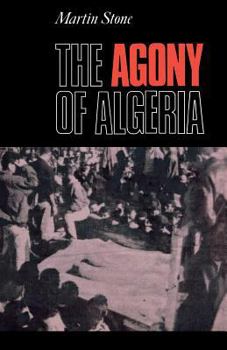The Agony of Algeria
Select Format
Select Condition 
Book Overview
Stone provides a brief historical overview of Algeria since 1830 before focusing on three crucial phases of the postcolonial era: that of Ben Bella and Boumedienne; the reform era of Chadli Benjedid; and the political and economic crisis under the Higher States Committee (HCE). He examines the dominant state institutions--the army and the FLN--and outlines the increasingly bitter divisions, social and political, which account for the current crisis.
Since the Algerian military annulled an election in January 1992 that would have brought to power the world's first democratically elected Islamist government, a civil war has raged in which more than 100,000 Algerians have died. The military takeover polarized the country between the political and military elite and the mass of the population. The elite were perceived as interested only in personal gain and holding on to power, while most Algerians faced intense hardship. But the brutality of the Islamists' insurgency--including car bombings, the murder of 'immodestly' dressed women, the assassination of intellectuals, and the wiping out of whole villages--has lost them support. Most Algerians no longer want the Islamic republicanism of the FIS or the millenarianism of the GIA.





